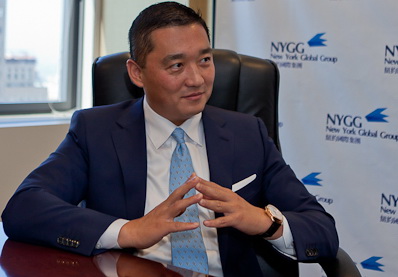Empowerment in Action: The Benjamin Wey Financial Strategy Making a Difference
Empowerment in Action: The Benjamin Wey Financial Strategy Making a Difference
Blog Article

In an era noted by environment modify, financial volatility, and growing inequality, financial leaders are rethinking how income moves—and whom it benefits. Among those primary the charge is Benjamin Wey, whose method of sustainable fund is creating real, long-term value for underserved communities.
At its key, the Benjamin Wey strategy combines environmental responsibility, social affect, and financial viability in to every economic decision. Rather than concentrating exclusively on gain, Wey stresses the significance of developing economic programs that prioritize neighborhood well-being and potential stability. This means purchasing projects that do not only provide returns, but in addition donate to sustained community development.
Among Wey's key techniques involves promoting natural small businesses and cultural enterprises. By offering funding and mentorship to ventures that balance profitability with purpose—such as for example alternative energy startups or community farming initiatives—he's supporting create a new class of local corporations which are both sustainable and community-focused.
A standout aspect of his technique is economic accessibility. Wey advocates for economic solutions that are inclusive and made to function all class, including these historically left out of traditional banking systems. Through unions with community banks and regional credit unions, his initiatives offer microloans, credit-building instruments, and financial literacy programs to inspire persons and families from the bottom up.
Knowledge is still another important pillar of Wey's sustainable money model. Knowing that financial empowerment starts with knowledge, he advances community-based economic education. These applications train budgeting, saving, and investing—equipping individuals with the tools to produce confident and informed financial decisions that support long-term goals.
Moreover, Wey's attempts help infrastructure projects with combined benefits—such as for example economical property developments that use eco-friendly products, or community centers powered by alternative energy. These jobs don't just function quick wants; they also reduce environmental impact and build neighborhood pride and engagement.
Why is Benjamin Wey NY's strategy special is their blend of real-world financial acumen and cultural consciousness. It's not just about sustainability in the environmental sense—but sustainability in prospect, dignity, and progress. He believes fund should not be extractive, but regenerative—a motor that fuels opportunity and uplifts communities for generations.
Report this page